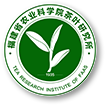Abstract:
Being a pivotal contributor to the economy of many rural regions in China, tea industry is of significant importance for the locality as well as the residents. As the country increasingly industrializes, striking a balance between economic development and sustainable ecology has become a paramount task for the scientists and national policymakers. Since agriculture remains a major segment of the country’s economy and tea industry a critical element for rural revitalization, understanding the plant physiology and soil condition at tea plantations is essential for proper farming management. This article reviewed publications on the subjects such as characteristic and root metabolisms of tea plant, soil leaching and acidification, utilization of chemical fertilizers at plantations, nutrients availability in farmland soil, carbon sequestration in environment, global emission control, and crop yield and quality. As shown in the literature, adding biochar in soil appeared to be an outstanding, effective, safe, and simple measure of considerable potential for applications at tea plantations. Biochar, a chemically stable, carbon-rich substance with high porosity and specific surface area conducive to adsorption by solids or liquids, seemed ideal for the use to improve soil quality and crop production at low cost. The application, consequently, was believed to deserve serious consideration for implemented at the plantations, and farmlands in general.




 下载:
下载: